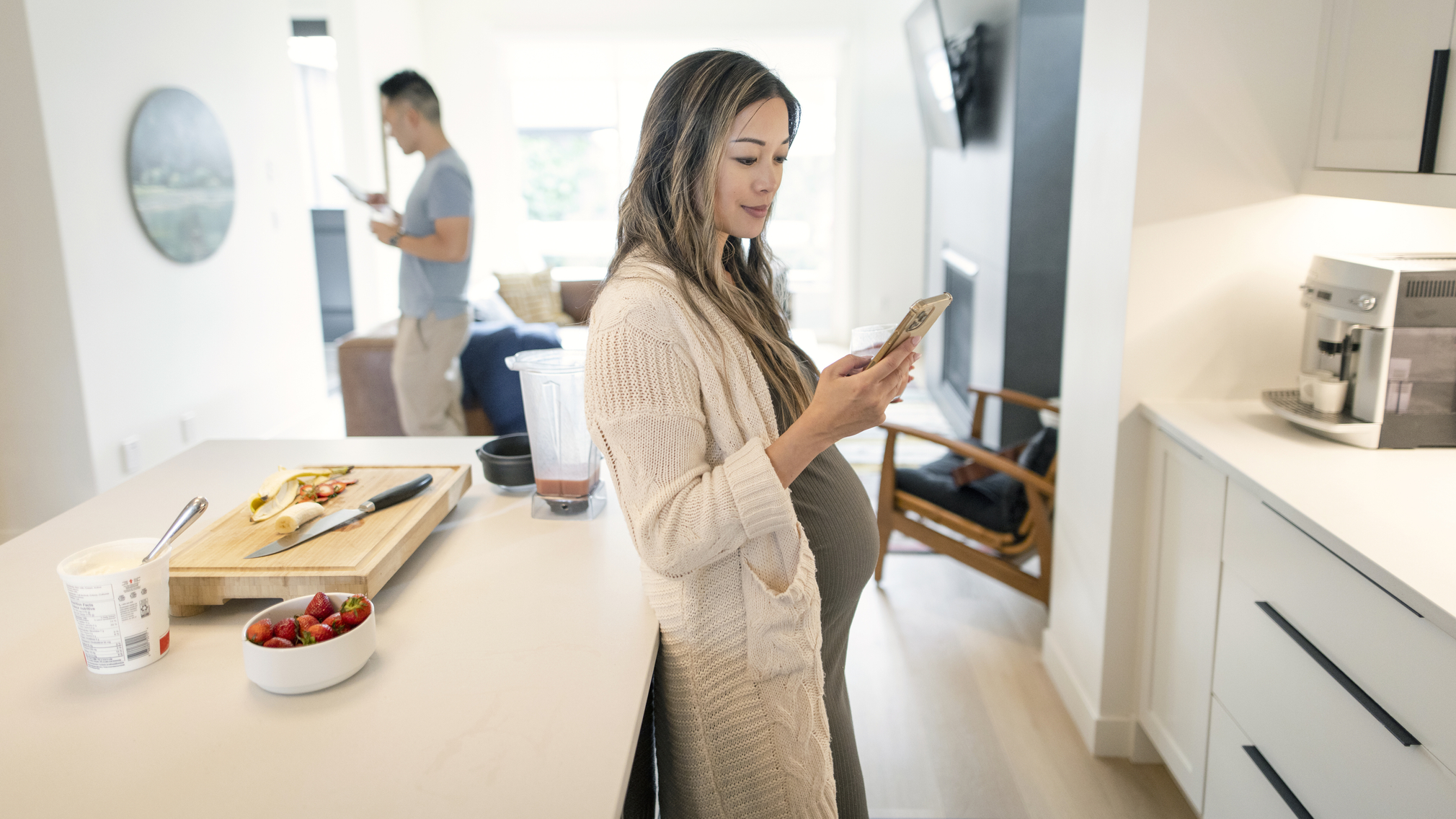What Is an Apartment Inspection?


Written by Shawnna Stiver on June 2, 2025
Reviewed by Chrissy Tran, Edited by Alycia Lucio
That dreaded notice just slipped under your door: “Apartment inspection scheduled for Thursday.”
Cue internal panic.
Your mind races through the pile of laundry in the corner, that mysterious stain on the carpet (was it wine or hot sauce?), and the fact that you haven’t dusted your ceiling fan since... well, ever.
Take a deep breath. That inspection notice isn’t a reason to stress — it can be an opportunity in disguise.
So what is an apartment inspection, anyway?
An apartment inspection is simply a routine check of your rental’s condition. Some renters imagine their landlord barging in with a white glove and a scowl, but inspections are actually routine checks that can benefit you when approached with the right mindset.
Think of it as your rental unit’s periodic health check-up. Your landlord or property manager conducts these inspections to ensure the apartment (and your home) is well-maintained, safe, and in compliance with the terms of your lease.
The secret most renters don’t realize? You can protect your security deposit, make a case for necessary repairs in person, and even use the inspection as leverage for lease negotiations if you play your cards right.
Types of apartment inspections
Apartments inspections are usually only done for a specific reason. The type of inspection you receive will depend on whether you're just moving into the apartment, have lived there for some time or are planning to move out. Here's a quick rundown of the types of apartment inspections you can expect:
- Move-in inspections: This is your golden opportunity to use an inspection checklist to document every scratch, dent, and quirk before you officially call the place home.
- Routine inspections: These typically happen quarterly, semi-annually, or annually, depending on your landlord’s preferences. Think of them as regular check-ups to catch small issues before they become disasters.
- Move-out inspections: The final judgment day that determines how much of your security deposit comes back to your wallet. Streamline your process and use a move-out checklist to compare against how conditions were when you moved in. This is where all that documentation from your move-in inspection pays off!
- Special inspections: These pop up when there’s a specific concern. Maybe a neighbor complained about a mysterious odor (hopefully not those leftovers in your fridge), or perhaps there’s a maintenance emergency like a leak affecting other units.
How often do apartment inspections happen?
Apartments are usually inspected 1 to 3 times a year. But sometimes more inspections may be needed to address a safety concern or emergency. If you’re wondering whether your landlord’s quarterly inspections are excessive (or if you should be concerned that you haven’t seen them in two years), here’s a breakdown of when and why inspections happen.
| Type of inspection | Why inspections happen | How often inspections happen |
| Move-in Inspection | Documenting unit condition before lease starts | Once at the beginning of your tenancy, typically on or before move-in day |
| Routine Inspection | Checking for maintenance issues and lease compliance | Quarterly, semi-annually, or annually, depending on your landlord’s policies |
| Move-out Inspection | Assessing damage before returning deposit | Once at the end of your tenancy, usually within 24-48 hours of moving out |
| Special Inspection | Response to complaints, emergencies, or safety concerns | As needed when specific issues arise; no regular schedule |
Some landlords are inspection enthusiasts, scheduling walk-throughs every few months, while others take a more hands-off approach, checking in only once a year. The frequency often depends on the property type, management company policies, and sometimes, unfortunately, past experiences with problematic tenants.
What are landlords looking for in an apartment inspection?
Landlords typically look for cleanliness, maintenance issues, and any signs of damage during an apartment inspection. They want to ensure the apartment is being well cared for and complies with the lease agreement. Common areas of focus include:
- Safety and habitability: Is your apartment safe to live in? Landlords check smoke detectors, carbon monoxide detectors, plumbing systems, HVAC functionality, and electrical systems to ensure nothing’s going to catch fire, flood, or worse.
- Lease compliance: Are you following the rules you agreed to? This includes checking for unauthorized pets, unapproved roommates, or modifications you didn’t get permission for.
- Damage assessment: They’re looking beyond normal wear and tear for actual damage that might need repair. A scuff mark near the door is normal wear and tear, but a hole in the wall from a late-night celebration could be considered damage you’re responsible for.
What to expect during an apartment inspection
Being prepared for what to expect can take the mystery (and anxiety) out of the inspection process. Here’s how the apartment inspection typically unfolds:
- Walkthrough: Your landlord or property manager will walk through each room, often with a checklist in hand. They’ll open closets, check under sinks, and look at ceilings and walls.
- Photos and notes: Many landlords take pictures or make notes about the unit’s condition. This isn’t to invade your privacy, it’s to document issues that might need addressing and to have a record of the unit’s condition.
- Discussion: Don’t be surprised if they ask questions about damages or maintenance issues they spot. This is actually your chance to point out things that need fixing.
- Follow-up: After the inspection, you should receive some kind of follow-up, either an all-clear or a notice about issues that need to be addressed. If they find something concerning, they’ll typically provide a timeline for remediation.
Do landlords need to give notice before an apartment inspection?
Yes, in most states, landlords must provide written notice before entering your apartment. The standard is typically 24-48 hours, though requirements vary by location. This isn’t just a courtesy — it’s the law in most places.
There are exceptions, of course. In genuine emergencies (think water pouring through the ceiling or smoke coming from your unit), landlords may enter without the usual notice.
Tenant rights vary significantly by location. It’s worth checking out your basic tenant rights to understand what’s legal in your area.
How to prepare for an apartment inspection
The inspection notice is on your fridge, the date is circled in red, and now you’re wondering how to tackle the cleanup and organization process. The good news is that you don’t need to completely overhaul your apartment. Here’s how to get your apartment ready for an inspection:
✔ Prioritize high-impact cleaning. Focus your efforts on areas that make the biggest impression, especially appliances, sinks, and vents. No, you don’t need to alphabetize your spice rack, just make sure there’s no mysterious sticky substance covering the stove.
✔ Handle DIY fixes. Change those burnt-out light bulbs, unclog slow drains, and patch small nail holes in the walls. These small fixes show you’re a responsible tenant who cares about the property.
✔ Have documentation ready. Keep evidence of existing damage that you’ve previously reported. If your landlord hasn’t fixed that leaky faucet you reported three months ago, have your email or maintenance request handy to show it wasn’t negligence on your part.
✔ Create clear pathways. Make sure your landlord can easily access important areas. They need to check windows, doors, smoke detectors, and other safety features. Move any obstructions, like your laundry basket, to give them easy access to these things.
How apartment inspections can benefit you
Here’s the mindset shift: Inspections aren’t always a cause for stress; they can be opportunities for you to protect yourself and improve your living situation. Here’s how to use an apartment inspection to your advantage:
Prove you’re a responsible tenant
A well-maintained apartment speaks volumes about your reliability. When lease renewal time comes around, being known as “that tenant who takes great care of the place” can give you leverage for negotiating better terms or even preventing rent increases.
Address repairs that need fixing
Inspection day is the perfect time to point out legitimate issues that need fixing. That persistent leak under the sink or the window that never quite closes properly? Now’s your chance to get them on the official repair list.
Protect your deposit
By addressing concerns early and documenting the condition of your apartment, you create a paper trail that helps prevent unfair deductions from your security deposit when you move out.
Improve your living conditions
Sometimes, we get so used to minor problems that we stop noticing them. Inspections can help identify issues affecting your quality of life that you’ve just learned to live with but shouldn’t have to.
Apartment inspections are a normal part of renting
Apartment inspections aren’t something to fear, they’re a normal part of renting. By preparing properly, you can protect your deposit, ensure necessary repairs get done, and even strengthen your position when it’s time to renew your lease.
Being proactive about apartment inspections is just one thing you can do to be a responsible renter. Even in the most well-maintained apartments, unexpected events happen. Request a renters insurance quote from Zillow, which can act as a financial safety net if things go sideways.
Remember: a good tenant-landlord relationship is built on communication and mutual respect. Inspections are just one way to maintain that relationship and ensure your home stays comfortable, safe, and in good condition.
Find an apartment you’ll love on Zillow
With Zillions of up-to-date listings and filters for your must-haves, it's easy to find your perfect apartment on Zillow Rentals.
Search rentals


